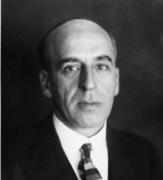|
|
||||||||||||||||||||||||
 |
Featured person
Recently added |
Robert Dick Megaw (1867 - 1947): |
||||||||||||||||||||||
The eldest son of John Megaw JP, farmer, of Ballyboyland, Ballmoney, County Antrim and Ellen Dick, Robert was educated at Ballymoney Intermediate School, the Royal Belfast Academical Institution and Queen’s College, Belfast. After taking his degree at QCB he studied Law at the Middle Temple, winning prizes there, and at King’s Inns where he was the Brooke Scholar in 1893.
Megaw was called to the Irish Bar in 1893 and joined the North East Circuit in 1894, building up a lucrative practice, although he did not become a KC until February 1921. Between 1912 and 1914 he was Professor of Common Law at King’s Inns. At various times he served as Junior Crown Prosecutor for County Armagh, and later as Senior Crown Prosecutor for Belfast. A member of the Orange Order, in May 1921, at the first General Election held for the new Northern Ireland Parliament he was elected a Unionist MP for County Antrim, and was immediately appointed Parliamentary Secretary to the Ministry of Home Affairs by Sir James Craig, holding this part-time post until he failed to be re-elected at the General Election of April, 1925.
Despite this setback to his political career, in 1925 and 1926 Megaw was appointed as Commissioner to hold a public inquiry into aspects of Belfast Corporation’s housing department, conducting a public inquiry in late 1925 and early 1926. In July 1927 he was appointed to part-time judicial office as the Judicial Commissioner of the Northern Ireland Land Purchase Commission, serving in that capacity until appointed a High Court judge in 1932. It was believed at the time that Megaw’s appointment to the High Court was in part due to his willingness to continue as Judicial Commissioner for no extra salary once he was appointed a High Court Judge, and he was immediately appointed as temporary Judicial Commissioner, continuing in that capacity until 1937.
Appointed the Judge of the Chancery Division, he was an able judge, although Sir Edward Jones described him as inarticulate. A less attractive aspect of Megaw’s personality was that he was vindictive to counsel he disliked, and one, WF Patton, left Northern Ireland because of Megaw’s open hostility towards him, returning after Megaw’s retirement to become one of the leaders of the Northern Ireland Bar.
Megaw retired due to ill health in November, 1943 after 11 years’ service and was granted an annuity of £2000 for life, probably because he had not served the necessary 15 years to be eligible for the normal pension of two-thirds of his judicial salary. He died in 1947.
One of his brothers was Major General Sir John Megaw of the Indian Medical Service. Mr Justice Megaw married a daughter of Thomas M’Elderry of Ballymoney, and they had five daughters and two sons, one of whom, Sir John Megaw, had a distinguished legal career in England, becoming the Senior Judge in the Court of Appeal.
| Born: | 26 October 1867 |
| Died: | 2 May 1947 |
| AR Hart |
| Bibliography: Kenneth Ferguson (ed): King’s Inns Barristers 1868-2004; AR Hart; A History of the Bar and Inn of Court of Northern Ireland; John F Harbinson: The Ulster Unionist Party 1882-1973 its development and organisation; St John Ervine: Craigavon Ulsterman; Sir Edward Jones: Jones LJ - his life and times; JO Wylie: The Judicature Acts (Ireland); George Hill Smith: The North East Bar; Brian M. Walker: Parliamentary election results in Ireland, 1918-1992; www; ILT&SJ, lxvii (1943), 301; Belfast Gazette 8 July 1927, 19 February, 1932; Belfast News Letter, 3 May, 1947; private information
|


Home | Our Policies | Plaques | Browse | Search | Sponsors | Links | Help | Contact
Privacy & Disclaimer | Cookie Policy | Site Map | Website Design By K-Point
© 2024 Ulster History Circle









